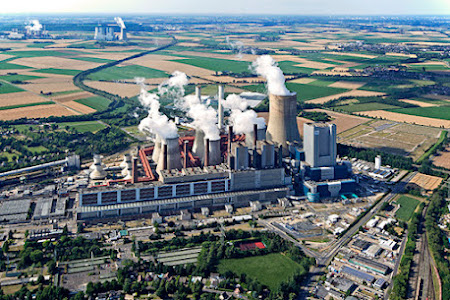At the end of 2022 or this year, all nuclear power plants in Germany will be discontinued, then in 2030 or at the latest in 2038 all coal fired power plants will also be discontinued. Germany in the context of decarbonization has planned to reduce fossil fuels, especially coal in its power plant. The percentage of nuclear power plants in Germany is 3.6% or about 8 GW and this requires immediate efforts to replace the electricity supply. Meanwhile, coal-fired power plants reach about 28% or more than 40 GW, and currently electricity production with coal is very expensive, due to the price of coal itself and carbon tax. Coal prices are around $150 but recently there has been a spike to $435 and a carbon tax of over $100 for every ton CO2 emitted. With these cost components, the price of electricity production for each MWh reaches around $220 (not including labor costs, maintenance, and so on), whereas if it is replaced with wood pellets the production price is only around $90 per MWh or approximately one third. Very cheap. Moreover, with the use of wood pellets, the sulfur scrubbing process (FGD = flue gas desulphurisation) can be reduced or even eliminated.
Biomass fuels such as wood pellets are carbon neutral so they do not increase the concentration of CO2 in the atmosphere, so that when using wood pellets for power generation and subsequent CO2 gas emissions, which are greenhouse gases, are captured and stored (CCS = Carbon Capture and Storage) so that they do not escape into the atmosphere, then this becomes carbon negative or reduces the concentration of CO2 in the atmosphere. The amount of CO2 gas that can be captured and soraged can also get carbon credit compensation, so that the coal power plants will get additional income. But without even having to use CCS, the use of wood pellets has reduced the cost of electricity production very significantly and is environmentally friendly. Meanwhile, if the power plant uses coal which is carbon positive and then CO2 emissions are captured and stored with CCS technology, this becomes carbon neutral. Of course, carbon negative efforts are better than carbon neutral.
On the other hand, Germany is famous for its technological products, especially industrial machines. A number of machine manufacturers for the production of wood pellets also come from Germany, such as Muench, Salmatec and Kahl. These machines are widely used for the production of wood pellets around the world and are reliable. It is possible that later the machines for the production of wood pellets will be imported from Germany and wood pellet products from Indonesia will be exported to Germany. This is in accordance with the potential advantages of each country. Indonesia with a land area of 1.91 million km2 with a lot of available land and being in the tropics has great potential as the world's main producer of wood pellets.
Currently about 55% of the fuel for power generation in Germany uses natural gas originating from Russia, and currently war is breaking out between Russia and Ukraine. The issue of Germany's alignment may affect the supply of natural gas from Russia to the country due to the war. Conversion from coal power plant to wood pellet power plant is not difficult and does not require a large investment, so this conversion is the most realistic solution. With the number of coal-fired power plants in Germany more than 100 units or about 1/3 of the electricity supply, so the need for wood pellets will also be very large if the power plants switch to wood pellets.









No comments:
Post a Comment